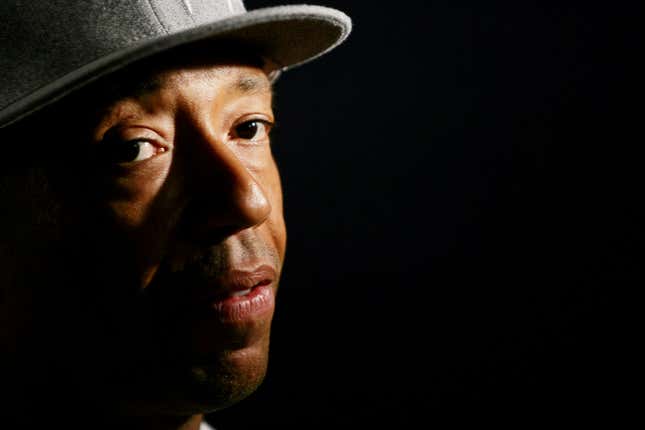
I’ve never been sexually abused, but I’ve witnessed firsthand the remarkable amount of courage and resilience it’s taken for On the Record to finally see the light of day. I can also say, with complete honesty, that my actions—or lack thereof in some instances—are exactly why a film of this magnitude faced such tremendous difficulty in doing so.
By now we’ve all heard about On the Record, the controversial documentary that explores the myriad of sexual assault allegations leveled against hip-hop mogul Russell Simmons in 2017 and his subsequent fall from grace—the same Russell Simmons who sold various properties throughout the United States in 2018 and relocated to Bali, a province without an extradition treaty with the U.S. So while it seems the Def Jam co-founder might’ve successfully eluded the court of law, he can’t escape the court of public opinion—and On the Record threatens to expose the rotting underbelly of his multi-media empire.
The problem is that the film should’ve never been made, which is no knock to directors Kirby Dick and Amy Ziering—accomplished filmmakers who’ve made it their mission to tackle difficult subjects like sexual assault in their work—but more of an indictment on the misogynistic culture that arbiters like Simmons helped cultivate. Had we, as a community, believed the courageous survivors featured in the film—which include former Def Jam executive Drew Dixon, author and activist Sil Lai Abrams and hip-hop pioneer Sherri “Sheri Sher” Hines among others—then On the Record would merely serve as an unsavory chapter in hip-hop lore. But instead, it’s an urgent call to arms; an open invitation for black men who know better to do better.
Behind the scenes, I’ve been intimately involved in this project for what seems like forever. I’ve hugged Drew, had dinner with Sil and talked hip-hop history—and her unheralded role in it—with Sherri. I was there when Oprah and Apple TV stood On the Record up at the altar and held down the cast and crew a week or so later when I attended the world premiere at Sundance in January.
I’ve workshopped ideas, sat through tears and unimaginable stress over the phone, sat in on numerous Q&A’s and panels promoting the film, watched black media wilt under pressure and rescind public support, and I’ve been practically adopted by the black feminist icons whose on-screen contributions provide context and clarity throughout the film: educator Dr. Kimberlé Crenshaw, OG journalist Kierna Mayo, author Dr. Joan Morgan and one of my best friends in this life and the one after, Shanita Hubbard.
Yet for all the collective strength, emotional labor and resilience that every single one of these women expended while navigating the development and release of this film, one thing was noticeably absent throughout that process: the support of black men.
And I don’t believe it’s a coincidence.
Since its inception, Hip-Hop’s symbiotic relationship with misogynoir has been equal parts rampant and unrepentant. Black women are habitually humiliated and dehumanized for the sake of entertainment, which in turn has manifested into a climate of hostility and violence that black men willingly perpetuate, but far too often fail to acknowledge contributing to.
Throughout the course of my life, there have been plenty of opportunities for me to do better, especially when I was younger, but far too often I turned a blind eye at the expense of a black woman’s safety or humanity. When they were called “bitches” or “females” I simply rolled my eyes instead of speaking up in their defense, and when someone I knew was accused of sexual assault and harassment when I was 19, I failed to adequately support the accuser. Those decisions directly contributed to a culture that not only dismisses the agency of black women but endangers their lives as well. It also perpetuates an environment in which people like Russell Simmons are allowed to fester and thrive, while women like Drew, Sil and Sherri are forced to suffer in silence.
My hope is that On the Record wakes our community up, but more specifically, that it inspires black men to assess our roles as active participants in the destruction of black women. To reflect on our mistakes, hold ourselves accountable and challenge each other to elevate our queens instead of constantly tearing them down or remaining indifferent to their plight. To that end, it’s equally important that we emerge from the shadows and provide the same unwavering public support that we’ve received throughout our lives as though it’s our birthright.
None of us are beyond reproach, and On the Record serves as a cruel reminder that our “best” has been nowhere near enough.
On the Record is available now on HBO Max.

